Easy Alphabet worksheets activities for Ages 4-9
6 filtered results
-
From - To
Welcome to our "Easy Alphabet Worksheets Activities for Ages 4-9" page! Designed to enhance early literacy skills, these fun and engaging worksheets offer a variety of activities to help young learners master the alphabet. Your child will enjoy completing colorful exercises that promote letter recognition, phonics, and fine motor skills. With easy-to-follow instructions, these worksheets are perfect for preschoolers and early readers alike. Whether at home or in the classroom, our resources provide exciting ways to learn while having fun! Start exploring our collection today and watch your child build a strong foundation in reading and writing.
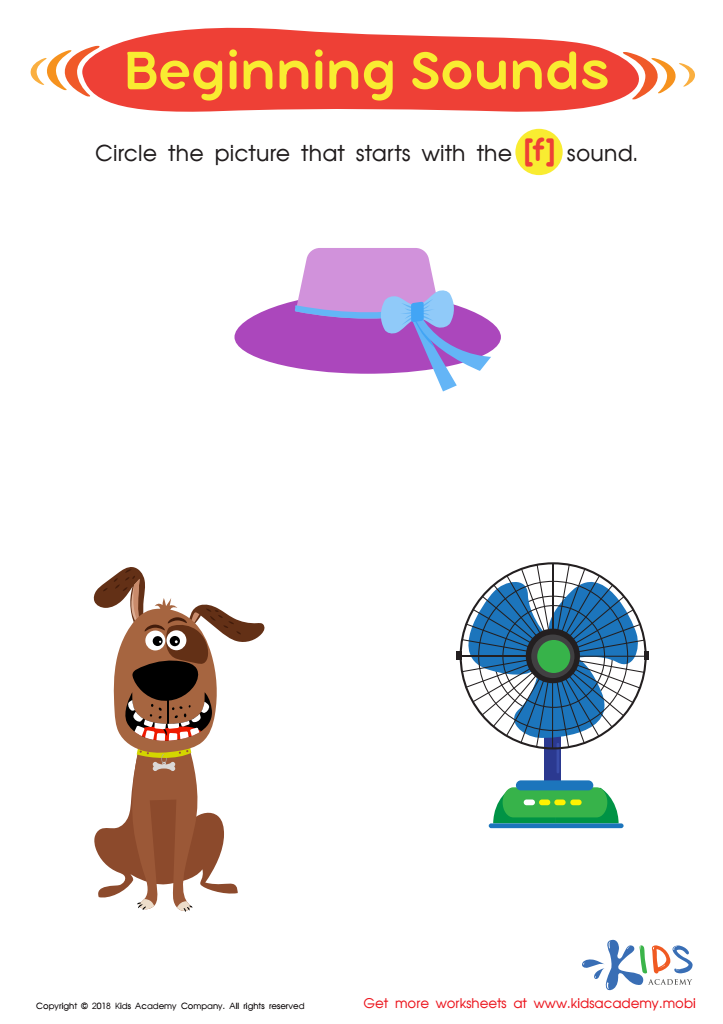

Beginning Sounds Assessment Printable
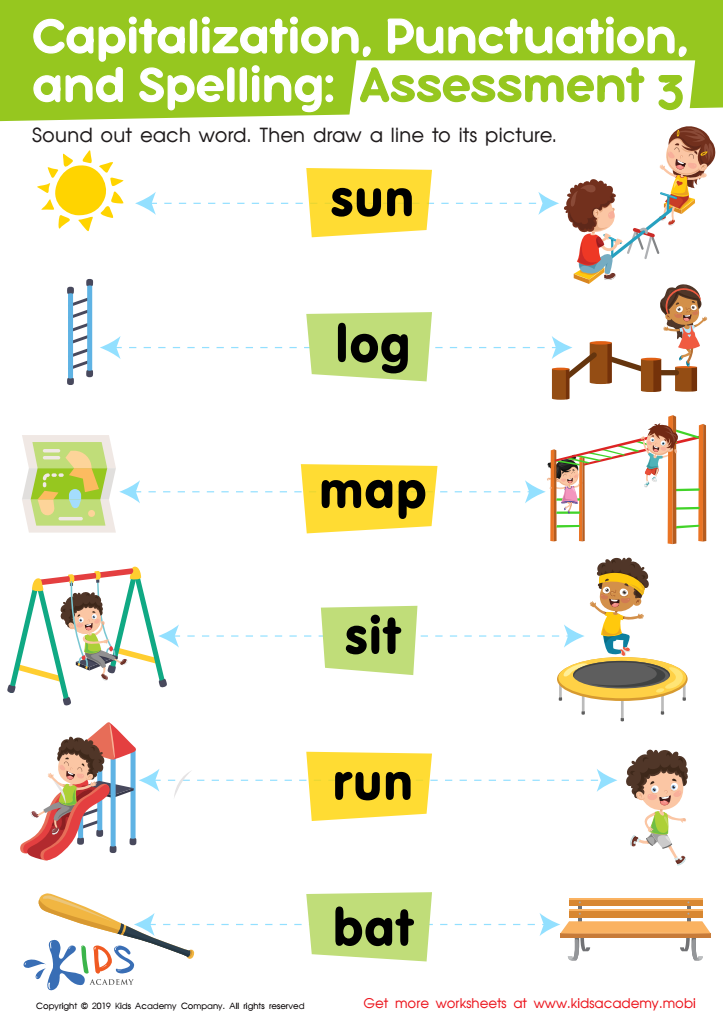

Capitalization. Punctuation. Spelling. Assessment 3 Worksheet
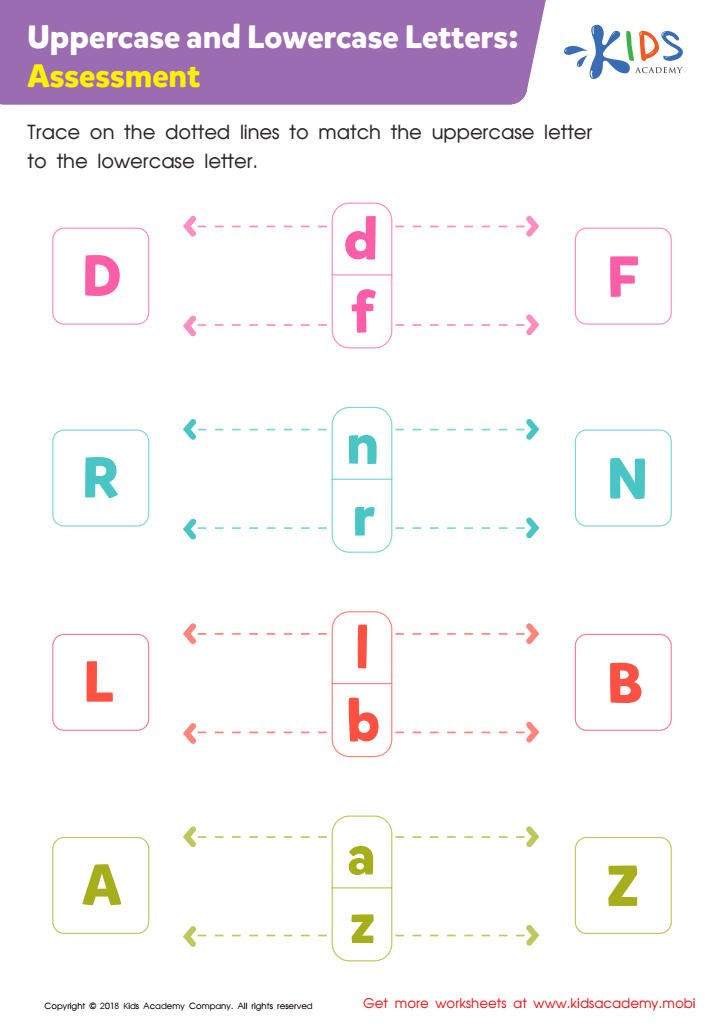

Uppercase and Lowercase Letters: Assessment Worksheet
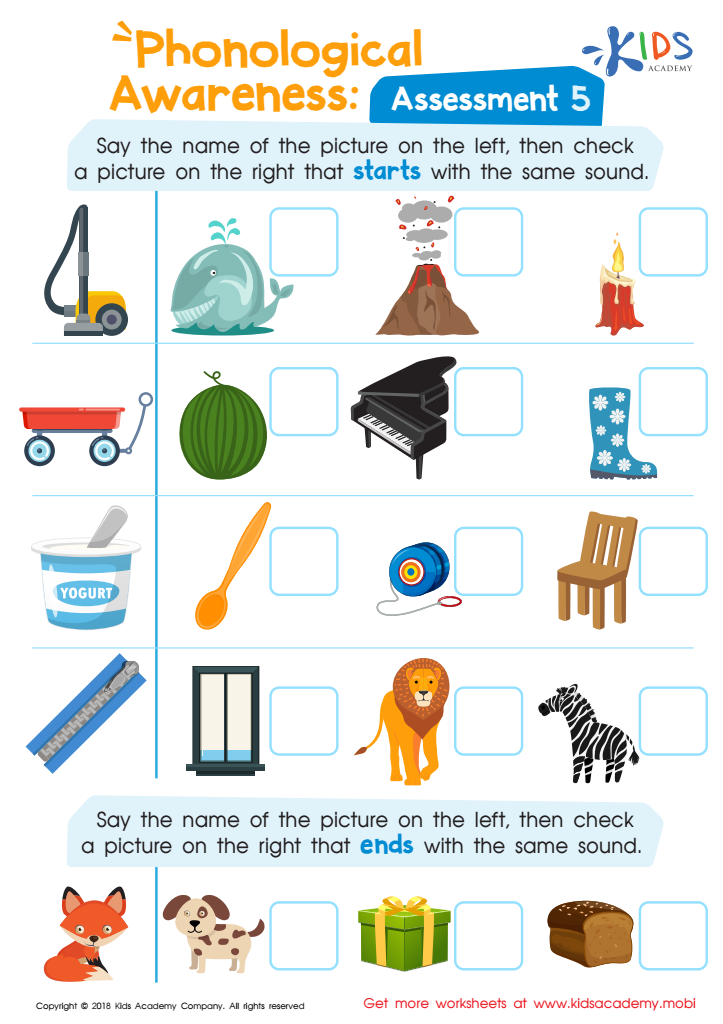

Phonological Awareness: Assessment 5 Worksheet


Phonics and Word Recognition: Assessment 1 Worksheet
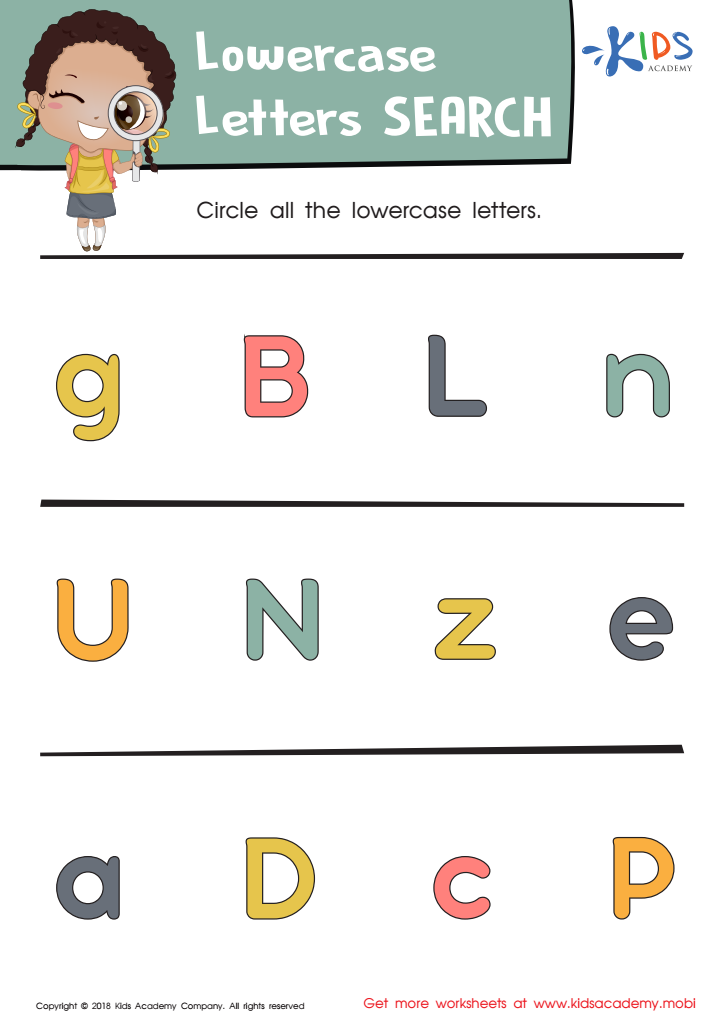

Lowercase Letters Search: Assessment Worksheet
Parents and teachers should prioritize Easy Alphabet activities for children aged 4-9 because these activities play a crucial role in early literacy development. At this age, children are forming the foundational skills necessary for reading and writing. Easy Alphabet activities engage young learners in fun, interactive ways, making the learning process enjoyable and motivating. Through songs, games, and hands-on crafts, children become familiar with letter shapes, sounds, and their corresponding words, fostering phonemic awareness.
Moreover, these activities enhance fine motor skills as children often cut, paste, color, and trace letters, contributing to their overall physical and cognitive development. Easy Alphabet activities also promote social skills, as they often involve collaborative learning with peers or parents, strengthening communication and teamwork abilities.
Research shows that early engagement with the alphabet boosts children's confidence and lays a strong groundwork for future academic success. When children grasp the basics of letters and their sounds, they are more likely to develop a love for reading, which will serve them throughout their educational journey and beyond. Thus, incorporating Easy Alphabet activities into daily routines is a powerful strategy for parents and teachers, creating enthusiastic, capable, and literate learners.
 Assign to My Students
Assign to My Students


















